Search Results
Showing results 221 to 240 of 328

Night Eyes
Source Institutions
In this outdoor, night-time activity, learners discover how to spot eye-shine (reflection of light from an animal's eyes) by using a flashlight to play a simulation game.

Ocean Home: Swimming Fishes
Source Institutions
In this activity, learners model, on a human-sized board game, how changes in water temperature may affect fish distributions and, ultimately, fisheries.

Go Bug!
Source Institutions
By playing a card game similar to "Go Fish," but based on the stages of metamorphosis, learners will be able to see how insects change in form as they grow and will consider the advantages of undergoi

Save Your Ears
Source Institutions
This game depicts a woman going through her day, faced with various loud sounds.
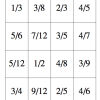
Comparing Fractions War Card Game
Source Institutions
In this math activity, learners practice comparing fractions.
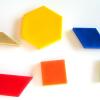
Building Fractions Game
Source Institutions
In this math lesson, learners investigate fractions by playing a game.

Throw Your Weight Around
Source Institutions
During this activity, learners take part in a variety of tasks which involve moving and balancing different body parts.

All Systems are Go!
Source Institutions
In this online activity, learners role-play as medics, treating a patient with missing organs. Learners select different organs, then drag them into the proper location in the patient's body.
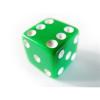
Nice and Nasty
Source Institutions
In this math game, learners throw dice and place the numbers in one of four boxes. Learners repeat this three more times and the learner with the largest four digit numbers is the winner.

Dance Diagram
Source Institutions
Teams of learners use a series of stick figures made from pipe cleaners to model a dance routine. Then, they use this model to communicate to another learner who performs the dance routine.
Pom-Pom Probability
Source Institutions
In this math activity, learners predict how many pom-poms they can toss inside a circle from three feet away. Use this activity to help learners explore probability.
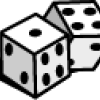
Wolf Survival is Just a Roll Away
Source Institutions
In this simulation activity, learners will raise a pack of wolves under ten different conditions: without human interference and with human interference.
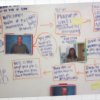
The Awesome Game Race
Source Institutions
In this engineering activity, learners design their own board games.

Power Up!
Source Institutions
In this online game, learners must purchase power plants for their city.

Family Scavenger Hunt
Source Institutions
In this activity, learners will take a walk with their family and incorporate a scavenger hunt. They will explore topics like ABC’s, numbers, colors, and shapes as they search for related items.
Size Them Up: Learning About Volume and Capacity
Source Institutions
In this activity, learners will put a set of containers in order by capacity. Would the tallest container hold more or less water than the wide, short one?

Baseball
Source Institutions
In this math activity (Page 17 of the Play Ball! PDF), learners play a game of "baseball" and analyze the results of the game.
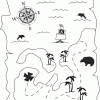
Treasure Hunters
Source Institutions
Learners use their opponent's clues and a compass rose to find the hidden treasure on a map. Learners use problem solving and coordinate grid skills as they hunt for treasure.
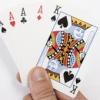
Two Sets!
Source Institutions
In this card game, learners make two sets of three cards that are alike. Learners must justify to the rest of the players why the three cards belong in each set.
Number Flips
Source Institutions
In this math activity, learners play a number game to explore the relationships between numbers, combinations, and the concept of equivalency.
